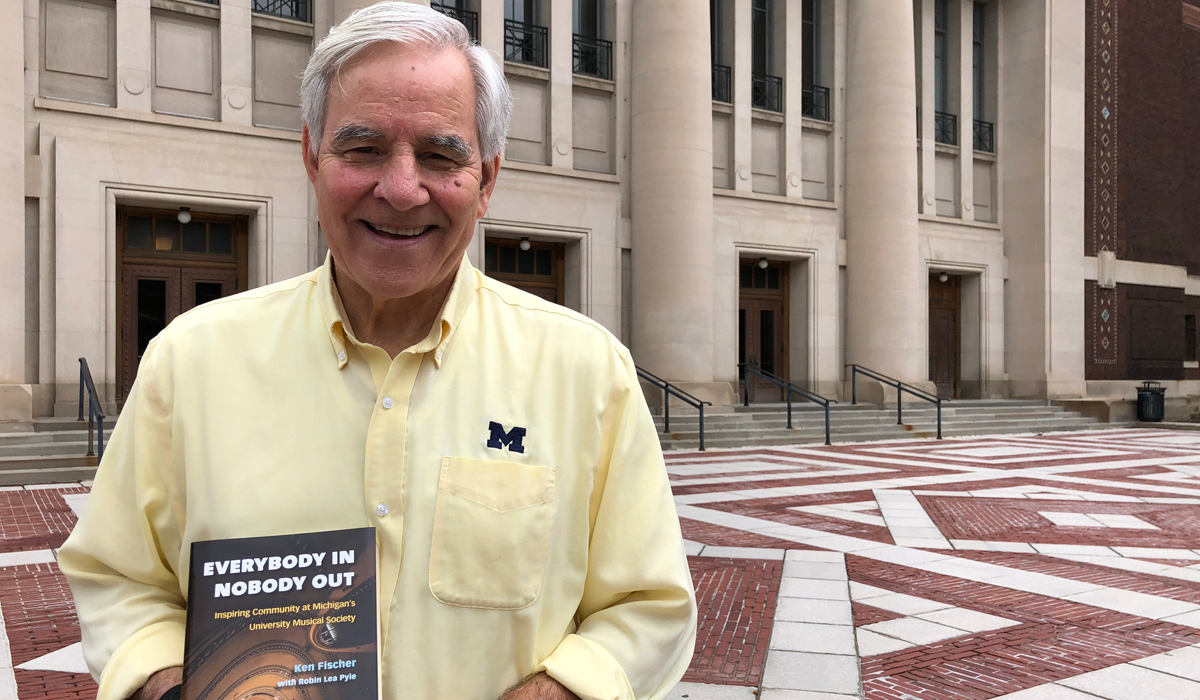When Ken Fischer, MA’67, HLLD’19, announced he would retire from his 30-year role as president of the University Musical Society (UMS) at the end of the 2017 season, everyone asked him the same question, “When will you write a book?”
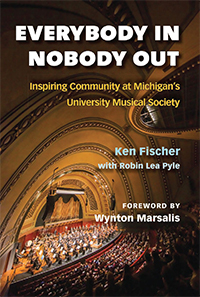 As only the sixth president of UMS in what was then its 137-year history, Fischer’s departing legacy was bringing the organization to global prominence. In 2014, UMS became the first university presenter to receive the highest award the U.S. government gives artists and arts patrons: the National Medal of Arts.
As only the sixth president of UMS in what was then its 137-year history, Fischer’s departing legacy was bringing the organization to global prominence. In 2014, UMS became the first university presenter to receive the highest award the U.S. government gives artists and arts patrons: the National Medal of Arts.
But Fischer was equally known as an iconic storyteller, particularly when it came to behind-the-scenes anecdotes. Hence the demand for a book, which he wrote following his retirement. “Everybody In, Nobody Out: Enriching Communities through Uncommon Art Experiences at the University Musical Society” (University of Michigan Press, 2020), focuses on both the formative experiences that led Fischer to UMS in 1987 and his vision to build programming that would educate audiences and connect with underserved communities in the region.
To celebrate the book’s release, Fischer shared some of his most memorable moments surrounding UMS performances in an interview with Michigan Alumnus.
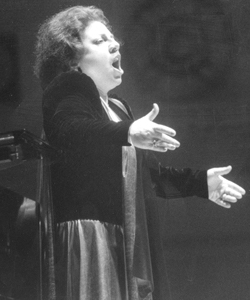
1997: Ewa Podleś “The one that I always think of right away is the concert that didn’t happen,” says Fischer, referring to a sold-out, highly anticipated concert with the Italian mezzo-soprano Cecilia Bartoli. Three days before the show, Bartoli canceled due to her voice being temporarily damaged from rehearsing and performing in a drafty hall in Ohio. As UMS scrambled to find a replacement on short notice, programming director Michael Kondziolka recommended Ewa Podleś, a lesser-known Polish contralto. The moment she agreed and was on route, the UMS team tackled the phones to call everyone who had purchased Bartoli tickets. In the end, 3,600 of the 4,200 ticket holders came to the show at Hill Auditorium and gave Podleś a standing ovation. “That was the prelude to a shift in thinking,” says Fischer. “A shift from ‘I’m not going to go because I don’t know the artist’ to ‘I’ve got to go because I don’t know the artist.’”
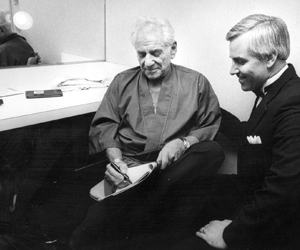
1988: Leonard Bernstein and the Vienna Philharmonic For Leonard Bernstein’s Ann Arbor stop on his 70th birthday celebration tour, UMS made 550 student tickets available at $10 each. The first 10 students to purchase a ticket, along with 20 previously ticketed music students, were invited to a post-concert gathering at U-M President James Duderstadt’s residence.
A line of students began to form 14 hours before the box office even opened. “Everyone there that night heard a magnificent concert of Brahms, Beethoven, and Bernstein,” says Fischer. “Then, when you walked out of Hill, kids from Pioneer High School handed departing audience members a small box with a piece of birthday cake.”
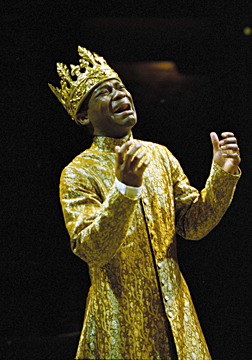
2001: Royal Shakespeare Company “History Plays” residency “In Great Britain, the RSC could not get people interested in producing Shakespeare’s history plays,” remembers Fischer. UMS, however, offered the Royal Shakespeare Company (RSC) the chance to perform the entire trio of “Henry VI” plays as well as “Richard III” during a residency in Ann Arbor. David Oyelowo — who would later receive rave reviews in his role of Martin Luther King Jr. in the 2014 biographical drama film “Selma” — played Henry VI. Some UMS ticket buyers opted to see all three Henry plays consecutively on a Saturday. “You went out to the lobby, picked up your lunch, and got back in the theater as soon as you could because you didn’t want to miss a thing,” recalls Fischer. “People couldn’t get enough of it.”
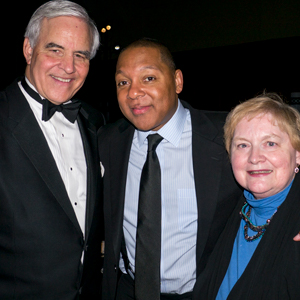
2014: Wynton Marsalis That year, Wynton Marsalis came to Ann Arbor with his Jazz at Lincoln Center Orchestra to receive UMS’s Distinguished Artist Award. After performing at Hill Auditorium, he and Fischer were to attend a donor dinner. But when they ran into two boys with trumpets at the back door of Hill, Marsalis asked the boys backstage to the dressing room. He said, ‘Take out your horn, and we’ll have a 15-minute lesson,’” says Fischer. “He and I both knew what he had to do. He wasn’t going to refuse two Black kids with their trumpets. And we both knew in my opening remarks at the dinner, I could just say, ‘Sorry we’re late, but this is why.’ Wynton is a great composer, and a fabulous trumpet player, but when I think of him, I think about him as an educator.”
Jenn McKee, ’93, worked for more than a decade as a staff arts reporter for The Ann Arbor News. She is now a freelance writer whose work has appeared in numerous publications.

